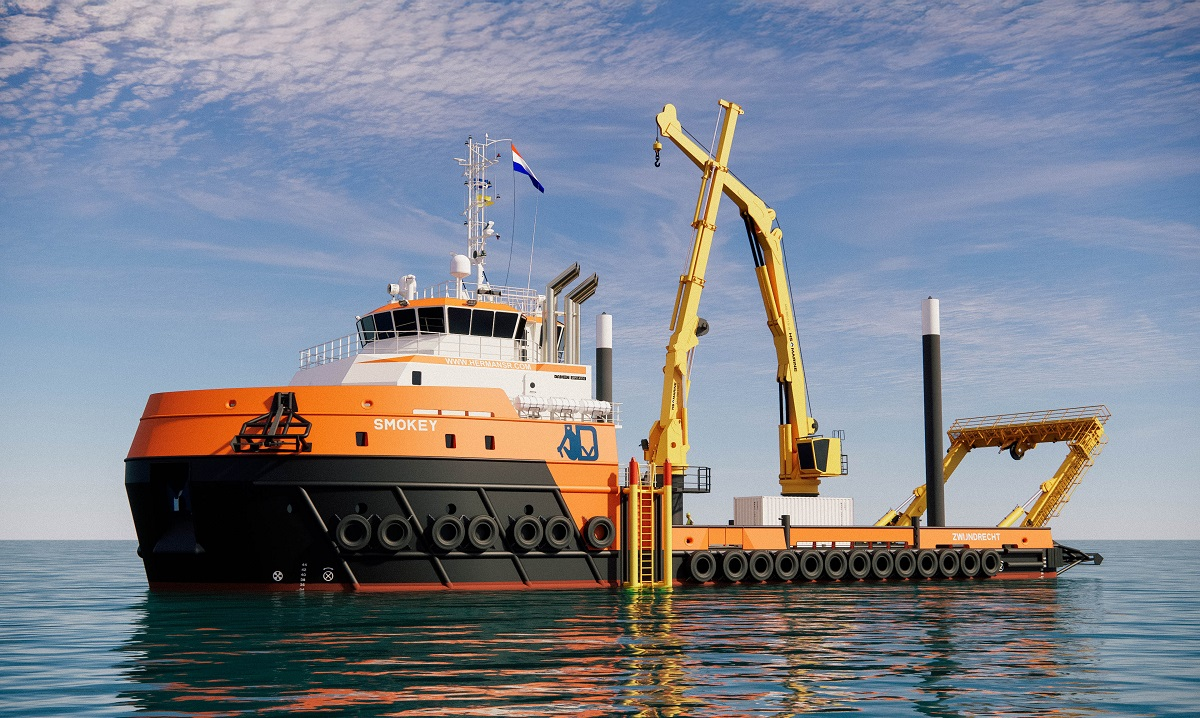Pacific leaders are calling for the International Maritime Organization (IMO) to fast-track setting up its Net-Zero Fund (NZF), warning that without urgent action the Organization will fail to deliver on its own commitment to contribute to a Just and Equitable Transition..
“Delay is the new denial,” said Hon. Ralph Regenvanu, Vanuatu’s Minister for Climate Change, Energy, Meteorology, Geohazards, Environment and Disaster Management. “By fast-tracking the Fund and ensuring equity in its governance, the IMO can prove it is serious about meeting its reduction targets — and serious about equity and justice for all nations. Without it, the IMO’s commitments collapse under its own weight.”
The Fund, designed to channel revenues from shipping, is expected to collect at least US $11–12 billion annually as a by-product of the regulation. IMO Member States have identified these revenues as a means to both incentivise shipping’s transition, and to contribute towards a Just and Equitable Transition.
But under the current IMO plan, the Fund’s governing provisions will not be adopted until 2028, meaning the support needed by SIDS and LDCs could be significantly delayed, at a time when they are urgently needed. Pacific states say this delay is unacceptable.
RMI Ambassador Albon Ishoda added, “Our 6PAC+ commitment to a Just and Equitable Transition remains true to a future that is 1.5 degree aligned. I will not compromise our communities to anything less than what the 2023 GHG Reduction Strategy called for.”
6PAC+ is a group of Pacific nations that includes Fiji, Kiribati, Marshall Islands, Nauru, Palau, Solomon Islands, Tonga, Tuvalu, and Vanuatu, as well as alliances from Africa and the Caribbean.
Hon. Simon Kofe, Minister of Justice, Communication and Foreign Affairs, Tuvalu, highlighted the legal imperative: “Both the International Tribunal for the Law of the Sea and the International Court of Justice have ruled that greenhouse gas emissions are marine pollution under UNCLOS. States have a duty to act consistently with this science and law. Delaying support to SIDS and LDCs would be inconsistent with that duty and with the IMO’s own Strategy.”
A submission to the IMO, co-sponsored by Fiji, the Republic of the Marshall Islands, Tuvalu, and Vanuatu, lays out a step-by-step accelerated timeline to fast-track the Fund’s creation, alongside temporary financing arrangements, such as interim loans or guarantees, so money can start flowing before shipping levy revenues arrive in 2029. It also spells out the core rules for how the Fund will be managed.
The goal is clear: make the Fund operational as soon as possible so it can start financing the shift to clean shipping, while ensuring that the countries most vulnerable to climate change — especially Small Island Developing States (SIDS) and Least Developed Countries (LDCs) — are put at the front of the line for support.
The Pacific submission also makes clear that who governs the Fund matters as much as when it becomes operational. Without equitable representation, the NZF risks being controlled by those least affected by both climate impacts, and the disproportionate negative impacts of the regulation (increase in transport costs) rather than those on the front lines.
The co-sponsors propose a 21-member governing board, divided equally: seven seats for Small Island Developing States (SIDS) and Least Developed Countries ( LDCs), seven seats for other developing countries, and seven seats for developed countries.
Board members would serve three-year terms with staggered renewal to balance continuity and fresh perspectives. The proposal also includes rotating chairs and observer roles for NGOs, industry, and Indigenous representatives — measures that mirror best practice in other global environmental funds.
For Pacific economies — which rely almost entirely on shipping for food, fuel, and connectivity — the Fund’s design will determine whether they can withstand the expected additional increase in transport costs, and benefit from the substantial opportunities generated by the transition, or be left behind.
Hayes Moses of Palau Marine Transportation Bureau explained:“Our ports, ferries, and regional supply chains need urgent investment. We cannot afford to wait three more years for the Fund to trickle into operation. Fast-tracking the Fund and securing fair representation will allow small islands to chart a course toward resilient, clean, and affordable shipping.”
Pacific nations emphasise that readiness support cannot wait until 2029. Interim disbursements are critical to help vulnerable countries prepare their national systems, safeguard food security, and build the technical capacity required to access and deploy funds.
The proposals will be on the table when governments reconvene in London for two critical meetings: the Extraordinary Session of the Marine Environment Protection Committee (MEPC ES/2) from 14–17 October, which will finalise and adopt the legal text of the Net-Zero Framework, and the Intersessional Working Group on Greenhouse Gas Emissions (ISWG-GHG 20) from 20–24 October, which will negotiate the detailed rules.
Pacific nations say these sessions are the moment for the IMO to prove that commitments made in the 2023 IMO Strategy can be delivered in practice — and that the Fund will be ready to support a just and equitable transition without delay.
Source: Micronesian Center for Sustainable Transport (MCST)





